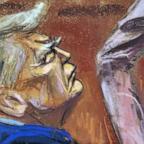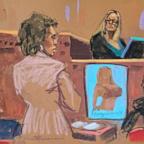Korean War chaplain's remains ID'd, was interred as unknown in US grave for 70 years
Capt. Emil Kapaun posthumously received the Medal of Honor in 2013.
Listed as missing for almost 70 years, Army Capt. Emil Kapaun's remains were identified as part of an effort by the Defense POW/MIA Accounting Agency to identify all the unknowns at the national cemetery in Honolulu.
"For our family, it's just an incredible time right now," his nephew Ray Kapaun told ABC Wichita, Kansas, affiliate KAKE on Friday.
"None of us ever expected it, no one in our family did. We always hoped, but the expectations were always low that his remains would be found," he added.
The storied chaplain's remains were turned over by the North Koreans to the United Nations Command as part of the 1953 armistice. While the U.S. Army laboratory in Japan was able to identify more than 50% of them, 867 sets of remains were transported to the National Memorial Cemetery of the Pacific where they were interred as unknowns.
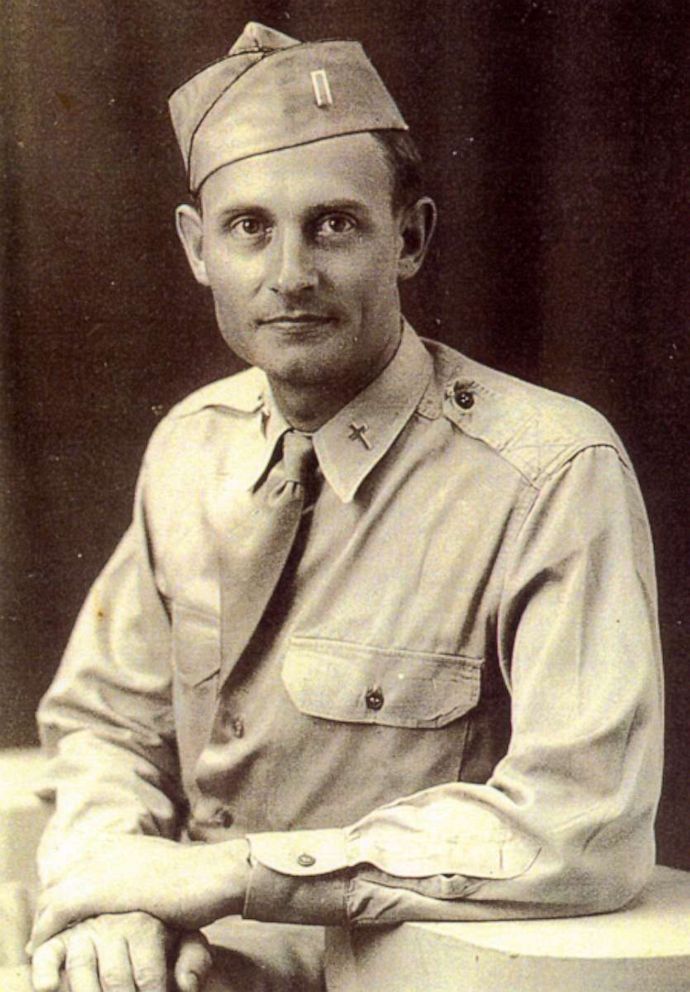
Kapaun died in the Korean War as a prisoner of war on May 23, 1951, but his fellow service members long told tales of his heroic and selfless acts as a soldier in battle and then ministering to other prisoners of war, Ray Kapaun told ABC News in 2013.
"All of the stories that came out -- that my grandmother would even tell us -- all of that came from the POWs," Ray Kapaun said.
"You talk to these guys and a lot times, when they first met him, they didn't even realize he was a priest or a chaplain. He was just one of the guys," he added.
The military chaplain who was posthumously awarded the Medal of Honor was also a priest who the Catholic Church is considering canonizing as a saint.
"It's just all come together as one, you know, the Medal of Honor and the possible sainthood has all become this -- like a shining light," his nephew told ABC News.
When Chinese forces entered the war with a massive surprise attack, his commanders ordered an evacuation, but Kapaun -- who was also a World War II veteran -- stayed to help his fellow soldiers, President Barack Obama recounted at the White House ceremony in 2013. Kapaun gathered the injured, tended to their wounds and ultimately helped negotiate a safe surrender.
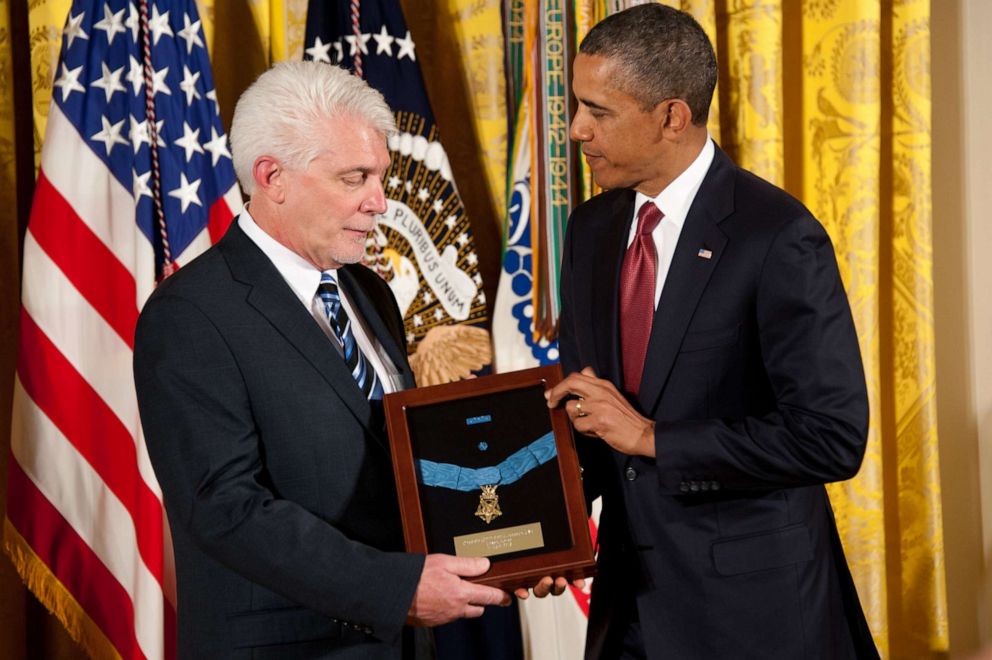
As his captors were leading him away, Kapaun noticed a wounded American soldier laying defenseless in a ditch. An enemy soldier stood over him, a gun pointed at his head. Undeterred, Kapaun marched over and pushed the enemy solider aside, saving his comrade. That soldier, Sgt. Herbert Miller, wept as he sat in the front row of the East Room of the White House, listening to Obama retell his story.
In the prisoner-of-war camp, Kapaun made it his mission to help keep his fellow Americans alive, offering them his clothing and sneaking past guards to forage for food. He also tended to their spirits.
"At night, he slipped into huts to lead prisoners in prayer, saying the Rosary, administering the sacraments, offering three simple words: 'God bless you.' One of them later said that with his very presence he could just for a moment turn a mud hut into a cathedral," Obama said in 2013.
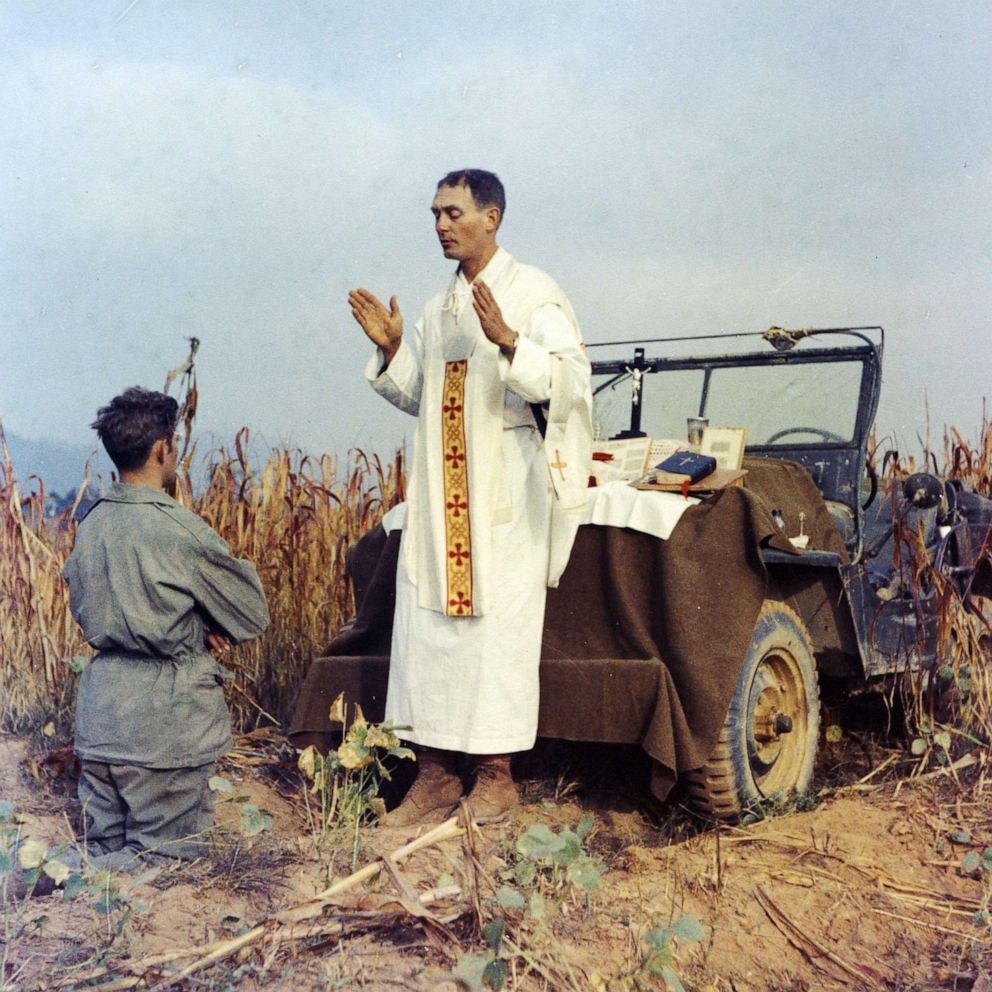
"It was their belief in what he did to help them through the prison camp -- to help them actually survive," Ray Kapaun told ABC News. "Those are the guys that told those stories and never stopped telling those stories."
Details regarding the transport of Kapaun's remains and his final resting place are now being planned by the family, according to a statement from the Diocese of Wichita, where the Pilsen, Kansas, native served as a priest.
In 1993 Pope John Paul II declared Kapaun as a "Servant of God" the first step in his possible canonization as a saint in the Catholic Church.


